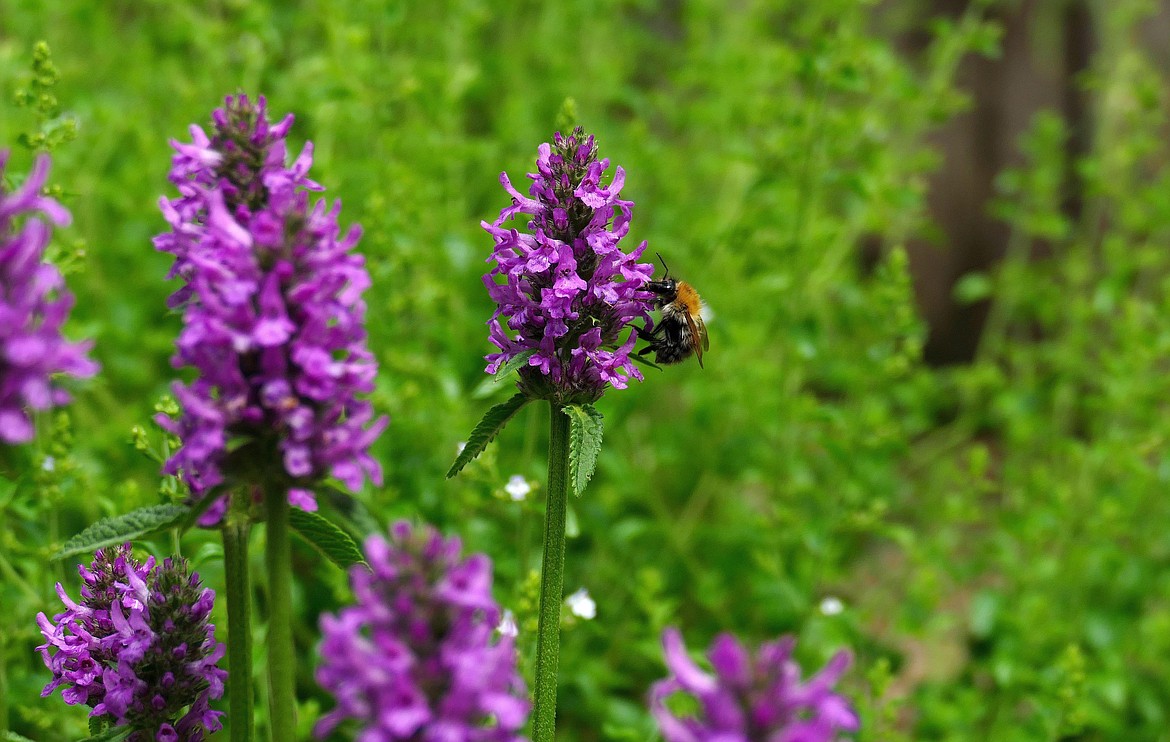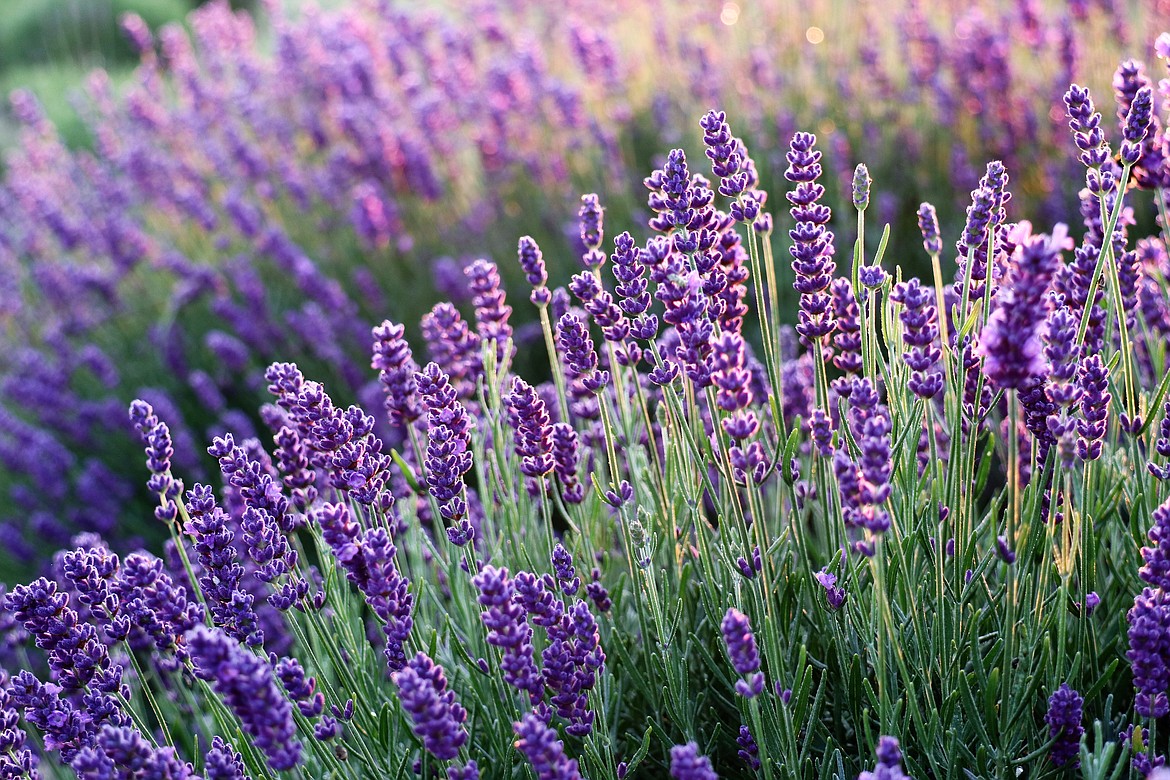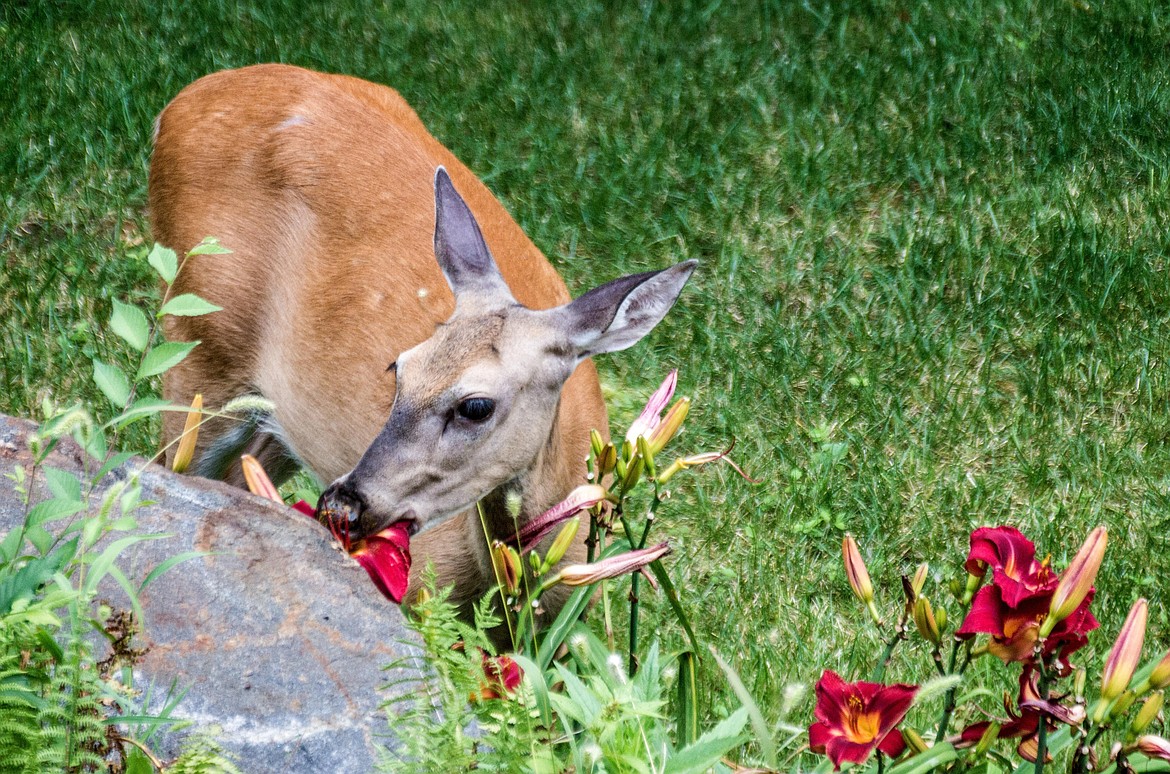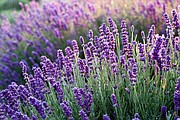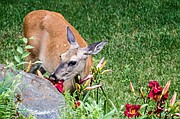Deer-resistant gardens keep moochers at bay
While we high-country Westerners may think we are the only gardeners to struggle with the depredations of deer, it’s not true.
Those beautiful but pesky moochers are a problem over most of the country from Pennsylvania to Oregon; thus, numerous garden catalogs address it with specially designed gardens that deter deer and their ilk, along with icons alongside each plant listing indicating their attraction (or non-attraction) to the four-legged opportunists. Now, as most of us know, lists of deer-proof plants are often chancy, since they’ve proven to us that they’ll really eat most anything if that’s all there is.
We expect that they’ll eat our roses, rhodies, struggling baby trees, and much more, but then it seems to run to chance. However, after researching today’s article by reading numerous garden books and perusing various excellent catalogs, I’ve come to a possible conclusion: we’ve been too all-encompassing in our observations.
In other words, while I’ve extolled the fact that “my” deer never bother my Hostas or sages (Salvia), others insist they are “their” deers’’ favorite food! The secret lies in the plants themselves! The deer like SOME Hostas, SOME Salvias — etc., etc. — but not all! The answer, then, is to find the ones they don’t like, and some great plantspeople have done some of this work for us!
Findings from experts
I’ll quote findings from High Country Gardens, White Flower Farm, Jackson & Perkins, and van Bourgondien, with random information (in which, quaintly, there are a few differing opinions, doubtless due to the vast geographical distances between them) and some lovely garden design suggestions from three of them.
First, though, I’ll explain a few of the exceptions to the general rule of holding the deer at bay. (A list of foolproof selections is featured in today’s Spotlight).
In general, deer don’t bother sage (Salvia) in its true bush form — therefore, your culinary and/or ornamental shrubby sages are probably safe. Also, a great number of ornamental Salvias are immune to deer gleaning, with a few exceptions especially noted. These seem to be exotic cultivars that offer either tempting color or scent to the deer: they relish Salvia pitcheri Grandiflora (Pitcher’s Blue Sage); Salvia ‘Maraschino’ (Maraschino Bush Salvia); Salvia reptans (West Texas Grass Sage); and Salvia greggii ‘Wild Thing’ bush sage), all of which incidentally are not geared to our colder climate but prefer zones 5-6 and higher). So go for the basic Salvia according to zone (3-4) — in fact, do this with any plant you purchase — and you’ll probably be OK. As for Hostas, the minis seem to be safer as opposed to the larger varieties.
Penstemon, newly popular over the past few seasons, is generally beloved by deer, though unpalatable to rabbits. The only deer-proof strain I could find was Penstemon tubaeflorus (White Great Plains Beardtongue). Sorry about that.
They are also reported to love Aquilegia (Columbine), but have never touched mine, and I have a lot of it. Generally, deer will also eat your coral bells (heuchera), dianthus (pinks), and asters, but not most daisies, Gaillardia (blanket flower), Marigolds (Tagates), or the perennial Maximillian sunflower (Helianthus).
Artemisias from the native Mugwort and Wormwood to lovely cultivars like Powis Castle, Silver Mound, Silver King, abrotanum (feathery, mounding ‘Tangerine’), and others are deer-proof except for the Curlicue Sage — Artemisia versicolor ‘Seafoam’— (which I think is kind of ugly anyway).
Ground covers offer several safe possibilities, including all the Thymes, creeping Phlox (the tall Phlox are deer-proof as well), Stachys (Lamb’s ears), Cerastium (Snow in Summer), Vinca Minor (Periwinkle), Saponaria (Soapwort), and Cranesbill Geranium, which are all great, but not the Veronicas except for pectinata (Blue Woolly Speedwell), Alyssum, or bellflower — which, like the fullsize Campanula, unfortunately attract the deer.
Funny, while the deer turn up their noses at Thyme, they’ll eat the Nepeta (catmint) except for Nepeta ‘Walker’s Low’ — which is great for me, since I grow it and love it — as do my cats! No accounting for their tastes, since they even eat spiny, thorny Echinops — but not the equally stickery Sea Holly (Eryngium)!
Garden plans
Just space for a couple of deer-proof garden suggestions before providing you with the sites of our “experts.” The focal plant is listed first, then ranging down in size and cover to the borders.
White Flower Farm offers our first: Weigela ‘Wine & Roses’; Phlox paniculata ‘David’; Stachys byzantina ‘Big Ears’; Perovskia; Allium affluentsis; Moonbeam Coreopsis; Salvia ‘Caradonna’; Cranesbill Geranium ‘Rozanne’; Calamintha nepeta.
From J&P (pinks and purples): Foxgloves ‘Candy Mountain’; Anemone ‘Queen Charlotte’; Cinnamon fern; mixed Helleborus; Polemonium ‘Purple Rain’; Astilbe ‘Montgomery’.
High Country Gardens suggests: Lavender (Grosso, Munstead, and Hidcote strains are hardiest), Artemisia ‘Powis Castle’, Stachys ‘Silver Carpet’, Agastache, Marrubium rotundifolium (a variegated leaf groundcover), Salvia (Dwarf Silver-leaf Sage), and Woolly Thyme.
A list of 'sure-fire,' deer-safe plants:
Achillea (Yarrow); Agastache (Hummingbird Mint); Allium; Anemones; Apache Plume; Asiatic Lilies (but not many others); Bleeding Heart (Dicentra); Buddleia (Butterfly bush); Coreopsis; Cranesbill Hardy Geraniums; Daffodils; Daisies (most); Delphinium; Echinacea (Coneflower); Evening Primrose (Oenothera) Ferns; Foxglove (Digitalis); Geum; Goldenrod (Solidago); Kniphofia (red hot poker); Lily of the Valley; Lavender; Liatris; Lupine; Mallow; Marigolds; Monkshood (Aconitum); Peonies (most); Perovskia (Russian sage); Periwinkle; Philadelphus (Mock Orange-Syringa); Potentilla; Rudbekia; Salvias (most); Scabiosa; Siberian Iris; Stachys (Woolly Lamb’s Ears); Santolina (Lavender cotton); Virginia blue bells (Mertensia); and Weigela.
Editor's note: For many years, Valle Novak wrote gardening and cooking columns for the Daily Bee. "Weekend Gardener" and "Country Chef" became renowned for their humor, information, and common-sense advice on how to do everything from planting to cooking. She left behind many columns to delight her many fans. This is one such column, originally published on Jan. 13, 2008.

